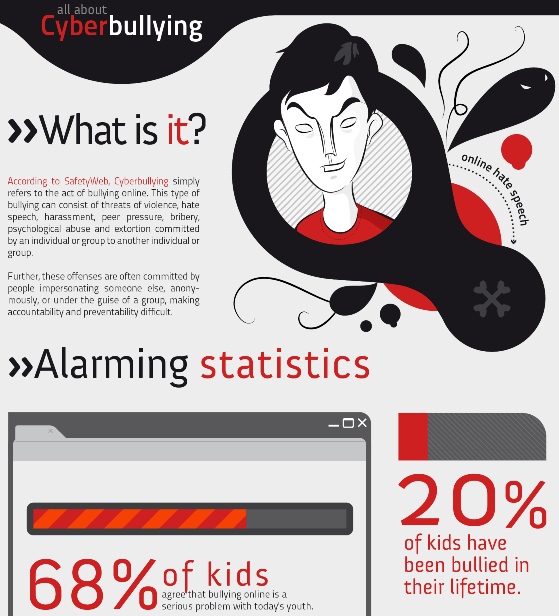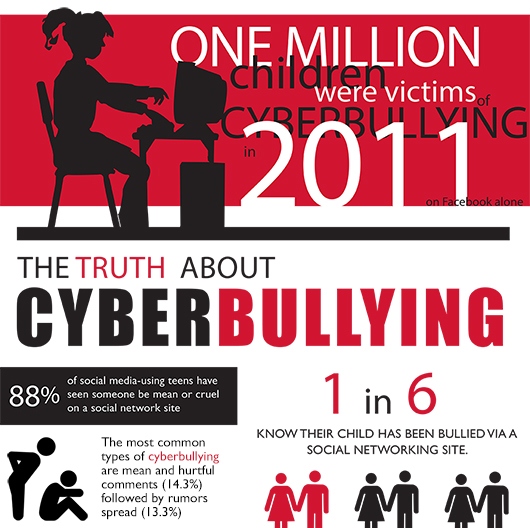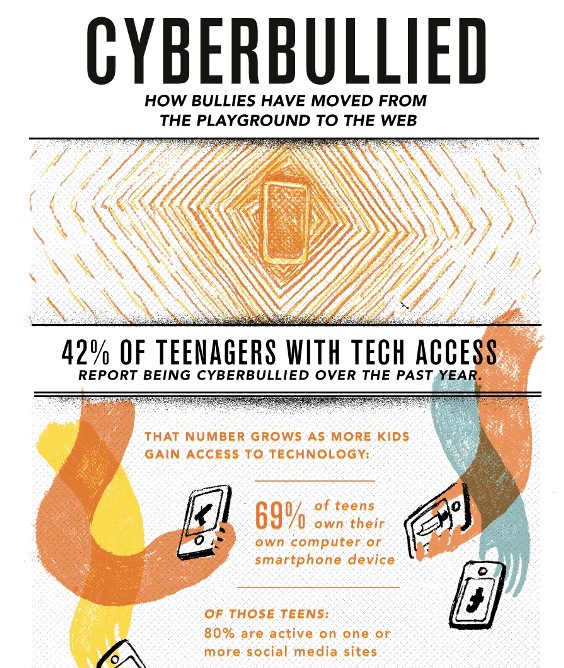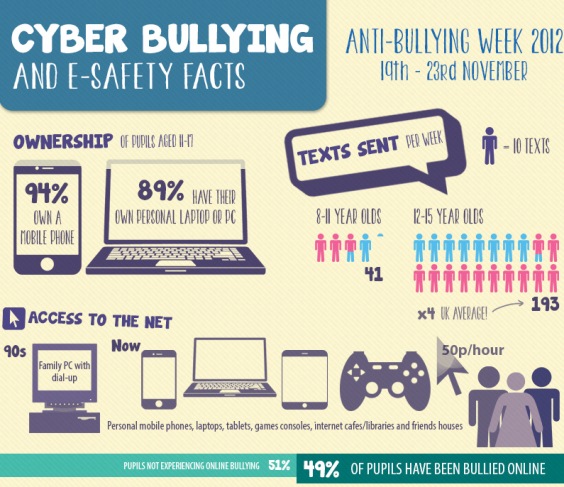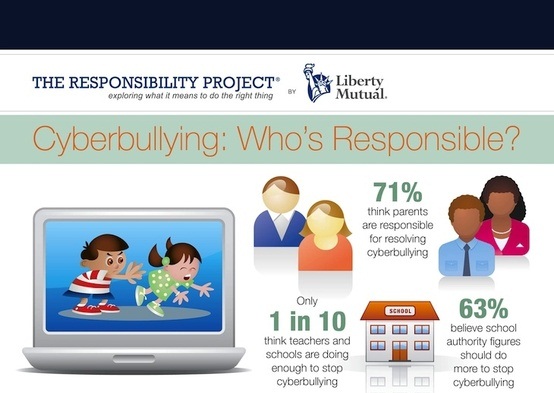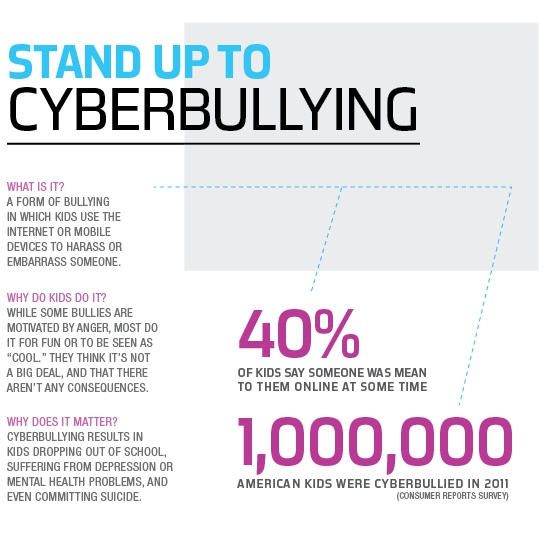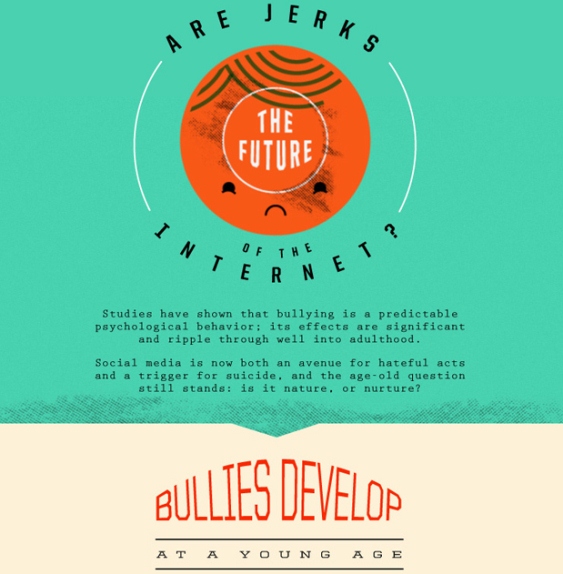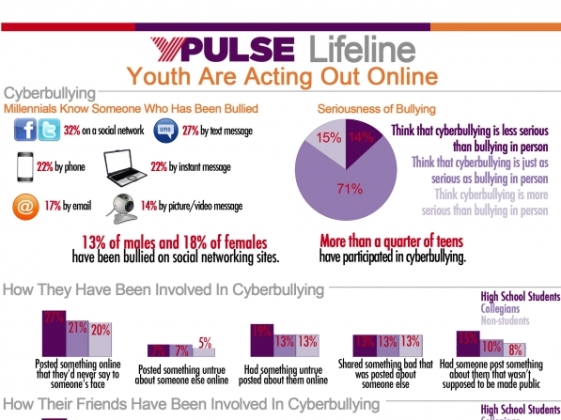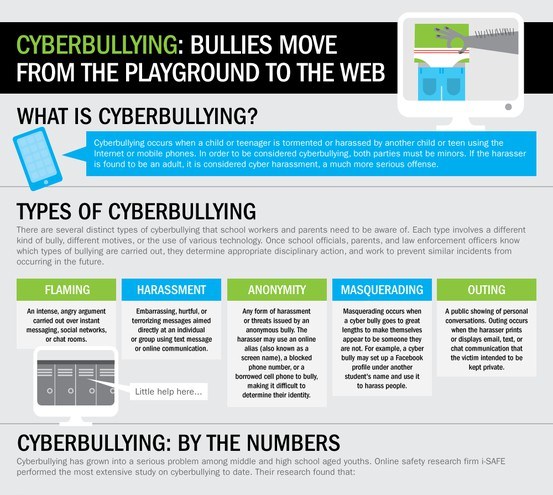All About Cyberbullying
According to safety web, cyberbullying simply refers to the act of bullying online. This type of bullying can consist of threats of violence, hate speech, harassment, peer pressure, bribery, psychological abuse and extortion committed by an individual or group to another individual or group.
Source: safetyweb
One Million Children were Victims of Cyberbullying
88% of social media-using teens have seen someone be mean or cruel on a social network site. 1 in 6 knows their child has been bullied via a social networking site. The most common types of cyberbullying are mean and hurtful comments (14.3%) followed by rumors spread (13.3%).
Source: uknowkids
Cyberbullied
How bullies have moved from the playground to the web. 42% of teenagers with tech access report being cyberbullied over the past year. 69% of teens own their own computer or smartphone device.
Source: onlinecollege
Cyberbullying: Social Media Becomes The New School Yard for Bullies
Back to school time is also a time when kids have to prepare to re-enter the intense social world they probably tuned out during the summer. As summer ends, parents should take the time to review the dangers of cyberbullying with them.
Source: mcafee
Cyber Bullying and E-Safety Facts
94% own a mobile phone, 89% have their own personal laptop or pc. 51% Puplis not experiencing online bullying, 49% of pupils have been bullied online.
Source: osiriseducational
Who’s Responsible for Cyberbullying
71% think parents are responsible for resolving cyberbullying. Only 1 in 10 think teachers and schools are doing enough to stop cyberbullying. 63% believe school authority figures should do more to stop cyberbullying.
Source: libertymutual
Stand Up To Cyberbullying
A form of bullying in which kids use the internet or mobile devices to harass or embarrass someone. While some bullies are motivated by anger, most do it for fun or to be seen as “cool” they think it’s not a big deal, and that there aren’t any consequences.
Source: nqmobilefamily
Cyberbullying: Jerks on the Internet
Studies have shown that bullying is a predictable psychological behavior: Its effects are significant and ripple through well into adulthood. Social media is now both an avenue for hateful acts and a trigger for suicide, and the age-old question still stands: is it nature, or nurture?
Source: onlinecounselingdegrees
Youth and Cyberbullying Infographic
The difficult of cyberbullying is unhappily still present among Millennials as we newly reaffirmed in our Lifeline Report on Unsafe Business. The majority of Millennials have had some immersion in cyberbullying, whether as a victim, by association, or as the perpetrator. Fully 7 in 10 Millennials think that cyberbullying is just as serious as bullying in person, yet they’re still engaging in this harsh behavior with 23% saying they’ve posted something online that they’d never say to someone’s face and a third have shared something bad that was posted about someone else.
Source: ypulse
Cyberbullying: Bullies Move From the playground to the Web
Cyberbullying occurs when a child or teenager is tormented or harassed by another child or teen using the internet or mobile phones. In order to be considered cyberbullying, both parties must be minors. If the harasser is found to be an adult, it is considered cyber harassment, a much more serious offense.
Source: zonealarm


